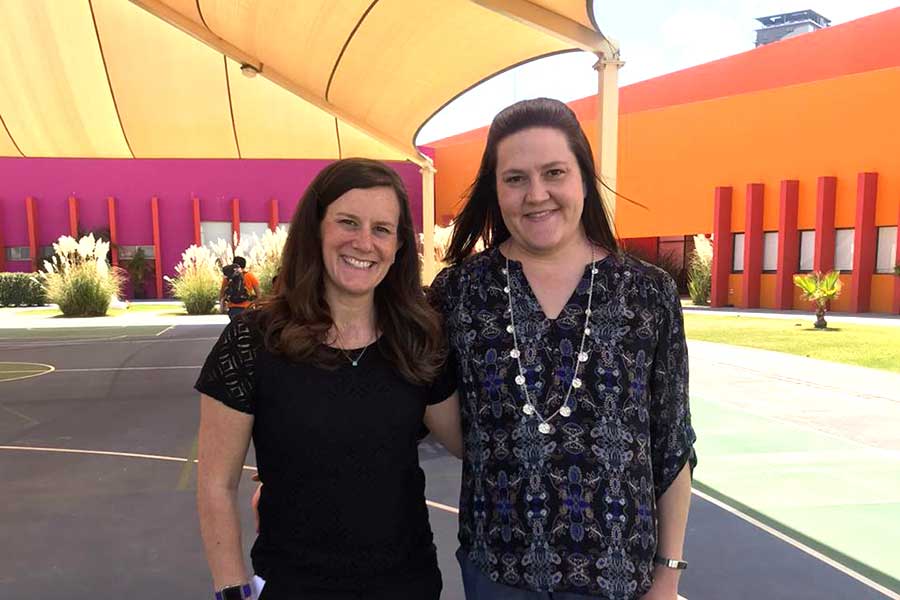Award may pave way for better cerebral palsy patient outcomes

Feb. 1, 2024 — DENTON —Seasoned researcher Heather Roberts is hoping a $100,000 award will significantly move the needle on early detection of cerebral palsy, and lead to better outcomes for patients and their families.
Roberts, an associate professor in the School of Occupational Therapy at Texas Woman’s who’s been researching cerebral palsy in children for nearly 20 years, received the award from the Patient Centered Outcomes Research Institute (PCORI), along with Angela Shierk, PhD, OTR from Scottish Rite for Children.
“This particular project is focused on patients with cerebral palsy and their families and early detection of CP,” Roberts said. “It will bring them together along with physicians, healthcare professionals and Early Childhood Intervention policy makers to plan a one-day hybrid conference in the fall of 2024 at Scottish Rite for Children.
“The goal is to bring about 60 different stakeholders together to learn about patient-centered research, early detection of cerebral palsy and help set future research directions/goals. A manual will be created as a guide for including patients with CP and their families in research,” she added.
Roberts’ earlier research focused on providing constraint-induced movement therapy (CIMT) to a single child. This type of therapy is aimed at helping children with weaknesses in one arm caused by cerebral palsy. Roberts says researchers now have evidence that shows CIMT improves arm function.

“What we continue to struggle with is how to get this research-based intervention into the hands of all the children who need it,” Roberts said. “It is not being implemented as a standard of care, and insurance is not covering the cost of it.”
Roberts ran into similar issues with Therapy Together, a caregiver-led intervention for young children that have unilateral cerebral palsy or are at risk for developing unilateral cerebral palsy.
It was intended to be delivered within a standard of care model with the collaboration of the State of Texas Early Childhood Intervention.
“Working with the State of Texas Early Childhood Intervention, we found that the children lack a diagnosis of cerebral palsy,” Roberts said. “Not having a diagnosis prevents them from receiving evidenced-based treatment, like CIMT. Early-detection guidelines exist and can diagnose CP as early as 3 months of age. But most of the time, children are not diagnosed until 3 or 4. An early diagnosis is key for optimal recovery. With all of that, we need to start at the ground level and gather all of the stakeholders: MD's, therapists, policy makers, educators, students and, most importantly, the patients and their families.”
That is why the PCORI award is instrumental. The award funds projects that are geared at bringing together all of the stakeholders, including patients, families, clinicians and policy makers, to participate in the entire research process.
“This award will provide the resources that prevent many patients and their families with CP from participating in research,” Roberts said. “The funds will pay them for their time as consultants, gas, babysitting services or the internet to allow them to be able to be a voice at the table.”
Roberts is planning on OT students being involved either as stakeholders or volunteers at the conference. Roberts is hoping that this most recent award will be the first of many.
Media Contact
Amy Ruggini
Digital Content Manager
940-898-3628
aruggini@twu.edu
Page last updated 11:36 AM, May 30, 2024